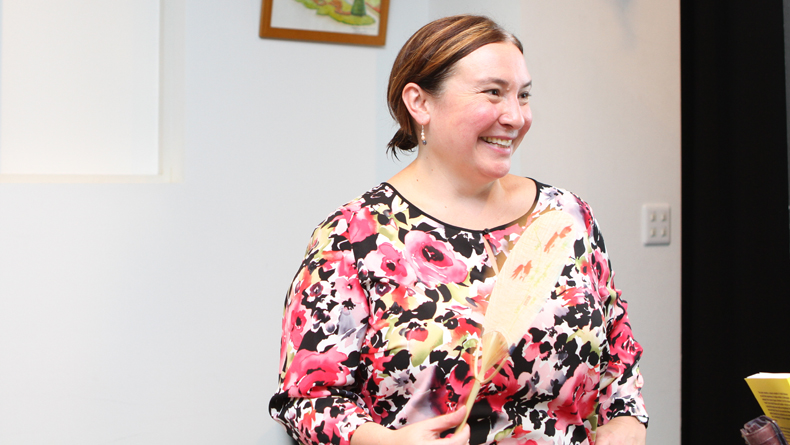Does Single Equal Unhappy?
Are single people destined to be unhappy? It's less a question than a statement in a media landscape awash with the hyper-feminist or sexually free woman. Nevertheless, “Why do I always have to account for my singleness?” is a question that intrigued FEW October speaker, Kristie Collins, author of "The Marginalized Majority: Media Representations and Lived Experiences of Single Women.”
The curiosity eventually led her to survey self-identified, single women ages 28-65 about their single identity. Somewhat surprisingly, despite media constructs that marriage equals happily ever after, the survey revealed that women ages 50 and over who had never been married were the happiest.
Collins calls the idea of a soulmate a “North American concept,” whereas in Japan women seem to make more calculated choices about marriage. “For many women in Japan, if they want to stop being single they can,” she said. But more often than not, it’s an either-or decision: to continue with their jobs or get married. Ironically, Collins said the young women in her media and gender studies class at the University of Tsukuba were very responsive to notions of women’s equality. But reality is often different. “(Most) will apply to jobs that they will do for four years before they get married,” she said.
In addition to Japan still being a traditional society when it comes to women’s roles, Collins sees media as partially to blame. She analyzed three popular television shows depicting women at different stages of success in their careers. When the option of marriage came up, the moral dilemma of love versus career sidetracked even the overachievers. “There should be an option C, “ she said. “Women in Japan need to see more examples of women who go back in the workforce.”
Despite decades of broadcasting female-centered shows on television, Hollywood isn’t fairing much better. “Media create templates that help us make sense of our lives, give us characters to fit into,” said Collins. “If no single women are happy in life [on TV], how do you [as a single women] tell them you are?”
According to 2011 statistics, 31.5 percent of households in Japan are single-headed households, while the female average marrying age is 30. By contrast, in the United States, 27 percent of households are single-headed, yet the average female marrying age is 26.9. Even if people are waiting longer to marry in favor of their careers, it doesn’t mean singles necessarily have it easier in the workplace.
In Japan at least, single women are often perceived as the ones who have more free time to work longer hours, while married women seem to be given some kind of invisible pass to return home earlier, said Collins. She recommended having allies at work. “It is important to understand that everyone has important things to do outside of the workplace.”
Ultimately though, no matter what your relationship status is, Collins said it comes down to a common truth, “We all arrive in the world as single individuals, and, to all intents and purposes, we all depart that way as well,” she said. “I am not actually advocating for being single. I am advocating for being happy.”
By Christina Hanazawa-Gallagher, Vice President of FEW
Kristie Collins is an associate professor in the faculty of humanities and social sciences at the University of Tsukuba, where she teaches gender studies, literature, and intercultural communication. To learn more about her book “The Marginalized Majority: Media Representations and Lived Experiences of Single Women,” click here.












Leave a Reply